Note to readers: This post was written in December of 2011. PLEASE do not ask me why I eat ‘this’ or why I don’t eat ‘that’ — as what is shown here does not necessarily reflect what or how I eat today (or more importantly, how you should eat). My diet evolves constantly, due to my constant tweaking and self-experimentation. Over time, I’ll share it here and there, but what I eat is not at all the focus of this blog. I ask that you refrains for pursuing questions about what I eat in the comment section.
Once people start to “get it” with respect to why carbohydrate reduction, or all-out restriction, leads to good things, the inevitable question I’m asked is, “So….what exactly do you eat?” I’m always a bit hesitant to get into this. It’s sort of like asking a pilot, “So…how do you fly this plane?” It’s a great question, but probably the wrong first question.
For many people it’s so overwhelming to contrast what they currently eat – probably a typical American diet of 500-600 daily grams of carbohydrates (200 grams of which are sugar) – with a diet of less than 50 daily grams of carbohydrate, which is what I consume. Remember, what I’m showing you here is what I have been eating for about the last 7 months. For the first 20 months of my nutritional transformation, I was gradually reducing carbohydrate intake from about 600 daily grams to 300 daily grams to 150 daily grams.
It’s really important to understand that carbohydrate reduction is a continuum. There is no “right” amount of carbohydrate to eat. Let me illustrate this with the following “2 by 2” matrix, below (sorry, once a consultant, always a consultant). When asking the question, “How much should I reduce my intake of carbohydrates?” it’s a good idea to start with two broader questions:
- What is my inherent level of insulin resistance?
- What are my goals?
There are technical ways to quantify the answer to the first question, which I will detail in future posts. However, the simple version of determining your inherent amount of insulin resistance is checking how many criteria of metabolic syndrome are present. In other words, are you overweight? Is your waist large? Is your blood pressure high? Do you have elevated blood glucose or triglycerides (these are determined from a standard blood test)? Do you have low HDL cholesterol? For the purpose of this question, even responding “yes” to one of these questions means you are predisposed to being insulin resistant. I was a “yes” to 3 of these questions.
Consider this matrix, and let’s use me as an example.
- How predisposed am I to insulin resistance? One look at a picture of me in my non-lean state, coupled with an understanding of my family history, and it’s clear I didn’t hit the genetic lottery with respect to insulin resistance. Hence, I am towards the right of graph.
- What am I optimizing for? Some folks want to lose 15 pounds. Others want to have fewer swings in daily energy level, or stop taking their blood pressure medicine. In my case, I want to maximize as many variables as possible: I want to be as lean as I can; I want to cure my insulin resistance; I want to be sure I never have a single symptom of metabolic syndrome; I want to do everything I can to avoid cancer and Alzheimer’s disease; I want to be metabolically flexible. Hence, I am towards the top of the graph.
As you can see, based on my poor genes and lofty goals, I find myself in the upper right square, which means I need to adopt the greatest amount of carbohydrate restriction. My wife, in contrast, has good genes, coupled with high goals, placing her in the upper left box. As a result of this combination, she does not need to restrict carbs as much as I do. If her goals were even more modest, she could get away with very little reduction in carbohydrates – probably just reducing sugar without much reduction in starch.
Below is a picture of a few of the foods you’ll typically find in my refrigerator. Note that on average I consume about 4,000 to 4,500 calories per day. I get this from approximately 400-425 grams of fat, 120-140 grams of protein, and 30-50 grams of carbs. In addition, there are a number of supplements I consume daily, which I describe in the table below. In future blog posts I will go into greater detail as to why I consume each of these supplements, but for now I’ll give a very quick explanation.
Finally, note that under no circumstance do I ever count calories (for the sake of limiting them). When I was first transitioning into ketosis I did need to count how much carbohydrate and protein I was consuming – anything over about 50 grams of carbs and 150 grams of protein makes it difficult to generate sufficient ketones – but I do not ever count calories for the sake of restricting them. I eat when I’m hungry. I don’t eat when I’m not hungry.
Regular supplements I consume every day
*I will be writing a great deal about the role of omega-6 and omega-3 fatty acids in our diet in subsequent posts. However, if you want a quick (albeit high-level and not overly nuanced) overview of the topic, take a look at what Dr. Andrew Weil and Livestrong have to say about it.
One last point on supplements – I do not take a multivitamin at this time, but I am looking into it a bit more closely. My concern is that 1) they may not be necessary when you remove glucose from your diet (I’ll write about why in the future), and 2) they may actually do direct harm, as a result of contaminants.
Ok, at long last, here is a list of what I ate over the past 5 days (excluding water, still and sparkling, which I consume about a gallon of each day)
Wednesday
Breakfast: “Fat shake” (In a blender: 8 oz heavy whipping cream, 8 oz sugar-free almond milk; 25 gm sugar-free hydrolyzed whey protein, 2-3 frozen strawberries)
Lunch: About 4 or 5 oz of assorted cheese (Gouda, Swiss, Manchego), 2 or 3 oz olives, about 4 oz of particularly fat salami and pepperoni
Late afternoon: About 2 oz of mixed nuts (almonds, walnuts, peanuts), large latte (latte made with heavy fat cream instead of milk) at Peet’s
Dinner: Garden salad with olive oil (lots of extra oil) and balsamic vinegar dressing, about 6 oz grilled salmon with a lot of butter and lemon juice
Thursday
Breakfast: Scrambled eggs (6 yolks, 3 whites**, with added heavy fat cream) cooked in coconut oil, 3 or 4 sausage patties (be sure to look for brands not cured in sugar).
Coffee with homemade whip cream (heavy fat cream hand whipped)
Lunch: Half chicken (thigh, breast, wings) with lots of skin; about 2 oz of Gouda and aged-cheddar
Dinner: Wedge blue cheese salad with bacon; 12 oz prime rib with lots of butter; 5 or 6 pieces of asparagus coated in butter
Coffee with half and half cream, 2 cups (the restaurant did not have heavy cream, so I had to settle for half-and-half)
**The reason I typically minimize egg whites, at least when making my own eggs, is to ensure I keep protein intake under about 125 grams per day. Ketosis is pretty easy to attain if one is eating, say, 2500 calories per day. However, given my caloric demands – and the requirement that I keep protein intake limited – I really need to go out of my way to ensure I’m not eating too much protein. I will be writing about this in much greater detail in a future post.
Friday
Breakfast: Whole fat latte at Starbucks (made same as above), scrambled eggs (about 4 eggs), bacon (high fat pieces), slice of Swiss and slice of cheddar (since I was eating in the airport, the scrambled eggs were made “normally,” not with the additional fat I use when making my own)
Lunch: About 4 oz of especially fat salami and pepperoni, about 2 oz Parmesan cheese
Dinner: Ground beef sautéed with heavy cream, onions, broccoli, and melted cheese
2 large cups of decaf coffee with homemade whip cream (heavy cream whipped with a touch of xylitol)
Saturday
Breakfast: Scrambled eggs (6 yolks, 3 whites, with added heavy fat cream) cooked in coconut oil, 3 or 4 pieces of especially fat bacon (not cured in sugar), about 3 oz of cream cheese
2 cups of coffee with heavy cream
Lunch: Tomatoes with basil and mozzarella and balsamic vinegar and olive oil, about 2 oz raspberries with homemade whip cream
Dinner: Leftover ground beef sautéed from previous night, salad with homemade cream dressing (whole fat Greek yogurt, olive oil, basil, blue cheese, garlic)
1 cup of decaf coffee with homemade whip cream
Sunday
Breakfast: Omelet (6 yolks, 3 whites, coconut milk, sautéed onions) cooked in coconut oil, 4 or 5 pieces of the fattest bacon I can find
2 cups of coffee with heavy cream
Lunch: Plate of assorted cheeses (aged Gouda, Swiss loaf, aged Parmesan – about 3 oz), about 2 oz salami, about 1 oz olives
Dinner: Cream of mushroom bacon soup (heavy cream, chicken broth, shredded Parmesan cheese, mushrooms, chopped bacon, garlic, butter, chopped papers, various spices), leg of lamb (baked in sauce made of red wine, balsamic vinegar, diced tomatoes, garlic, and a lot of spices)
2 cups decaf coffee with homemade whip cream (as above)
So there you have it — 5 days in the eating life of Peter Attia. This may look a bit strange, relative to what you may be eating now, but remember, I’m at the far end of the spectrum – i.e., nutritional ketosis. You may just be starting your own journey of reducing carbohydrates, but I hope this gives you an idea of what I eat. In particular, what probably stands out is:
- I go to great lengths to avoid sugar which, unfortunately, shows up in virtually every highly processed food.
- I eat zero starch (e.g., bread, cereal, rice, crackers, pasta).
- I consume only modest amounts of fruit (one serving per day, at most, and only in the form of berries, which contain the least amount of fructose).
- I eat vegetables, but primarily because they are a great way to get more fat (e.g., high-fat salad dressings, butter), not because I “need” them.
- I go out of my way to eat as much fat as possible, especially monounsaturated and saturated fat (the only fat I avoid is omega-6 polyunsaturated fat).
- I have a few “go to” meals that I eat several times per week. I do this because I really like them and it’s quick and easy make them. Yours need not be the same!
Photo by Glen Carrie on Unsplash

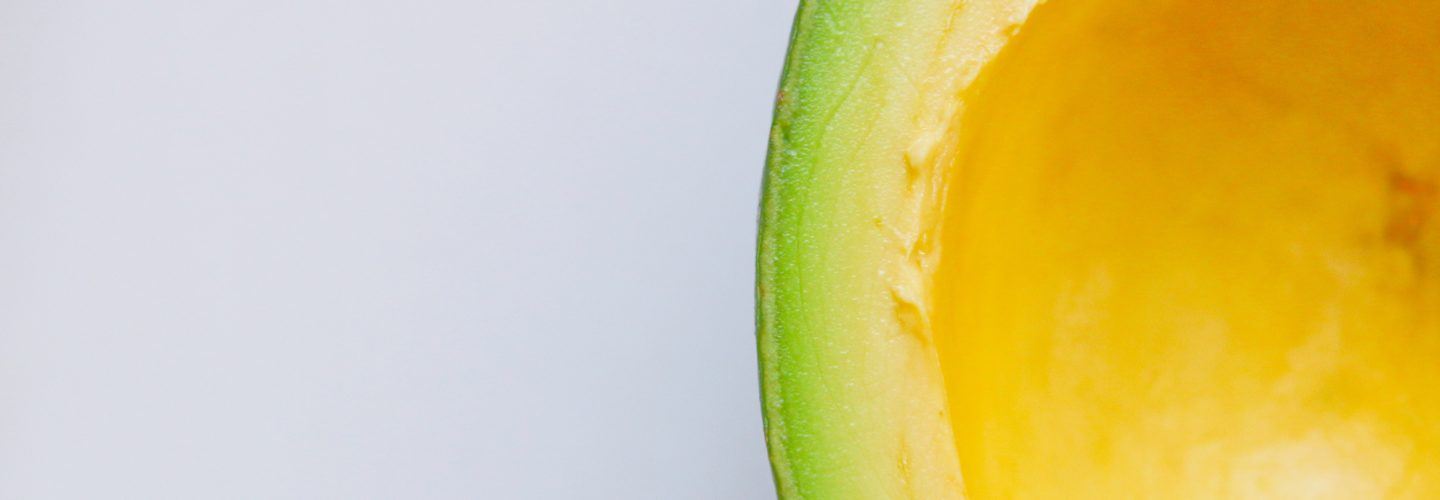
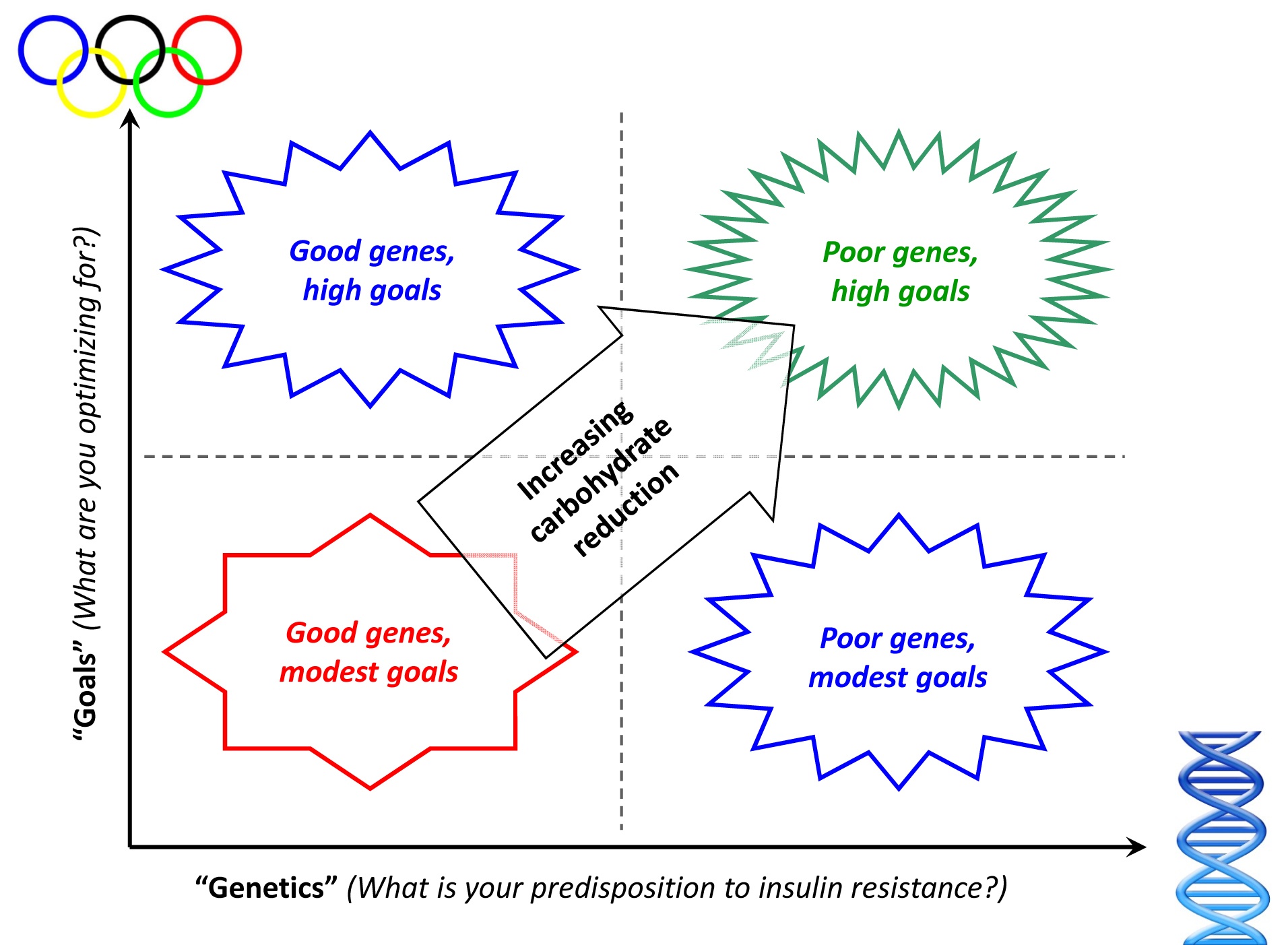

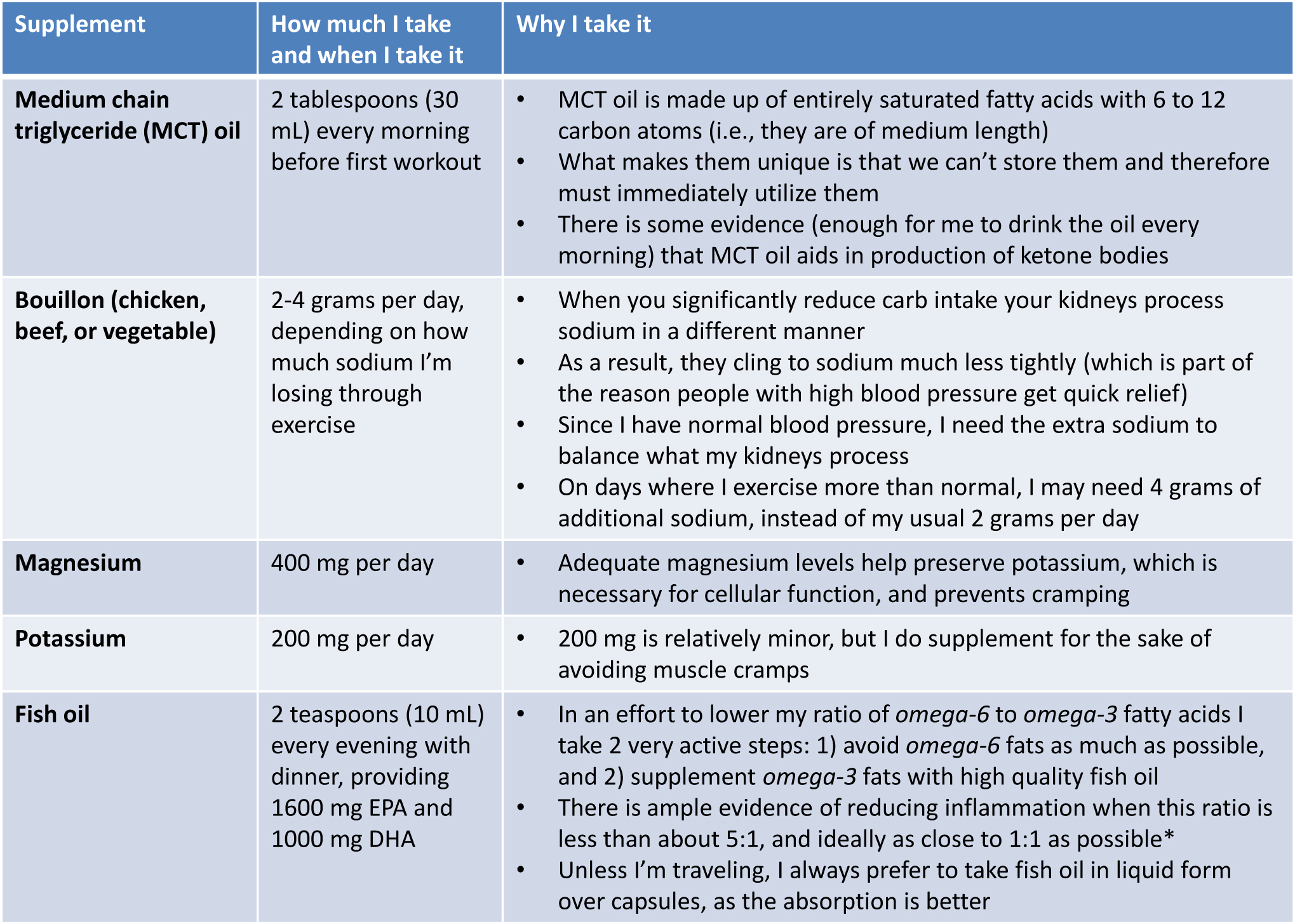

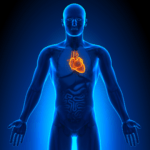
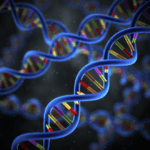
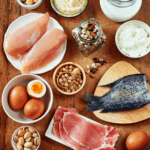
Hi there I’ve been reading your posts, and am pleasantly surprised to learn that I can eat eggs, butter, fish, and some other stuff without dying of clogged arteries and high cholesterole. I’m about to start keto shortly, purely for experimentation not weight loss, so I was wondering if you ever got around to posting that article about the mistakes you made in the beginning and how you fixed them. Also, as for magnesium, how much would you suggest for someone like me who is 103 lb 5’1″.
This is a great website. Thanks Dr. Attia for the info you’ve given here.
I’m into my fourth year on high fat/very low carb.
Trigs way down, weight way down, inflammation down, energy up, feel great at 69; I don’t intend ever to give up this lifestyle. Never have felt so good.
For those struggling, who are consuming more than 5 carb grams per meal, count carb grams not calories, and see how you do over time. Even too much broccoli or lettuce gives me problems; I can’t deal with more than 5 c.g. per meal. Those who fatten on carbs and have blood sugar issues need to be scrupulous about carb grams, and you need to be honest with yourselves about your eating habits. You won’t lose weight if the amount of carbs per meal causes insulin reaction after eating. When high-fat low-carb meals suppress insulin, the body must burn fat for energy.
peter,
do you have any info on colitis and what a good diet would work for that?
I’m not expert in this arena, but I’ve watched countless people improve their symptoms with dietary change. The removal of wheat seems to be effective in people who do not have a “formal” sensitivity. They is strict elimination experiments that aim to elucidate the cause.
Hello Peter,
I’ve been in Ketosis for roughly 3 weeks now. I’ve given it a try as a potential treatment for chronic fatigue and sinus issues I had been having. I’ve also however been supplementing with Vitamin C and Vitamin B as part of a naturopathic treatment for chronic fatigue. I’m curious however, in general, what role vitamin supplementation plays in a ketogenic diet, and what the science has to say about it? For instance, I’ve heard that glucose and Vitamin C compete for the same metabolic pathways, which might be in part why ketosis does not lead to problems such as Scurvy, despite a decrease in dietary vitamin C intake.
Thanks,
Ghislain
P.S. What your doing here with the site in fantastic.
Correct re: vit C. Supplementation varies by individual and specific nutrition. I only supplement in myself and others what is needed. No formula or “general” recommendation for most.
Hi Peter,
I was wondering if you would ever do some nutritional coaching with someone who is looking to shift their eating into ketosis under direction of someone like you. If not do you know anyone who I could talk to hire for this? I can expalin more details through email. Thanks!
Courtney
Hello Peter-
I was a bit wary of asking this question since it is about food you consume, however it really addresses a larger topic in general.
I have “gotten over” the fear of consuming large quantities of saturated fat, how liberating! I noticed that you are a fan of fatty salami and pepperoni, these happen to be part of my favorite food group, cured fatty sausages. My remaining concern is with the sodium nitrate/nitrites used in these. Do you feel concerns with these salts are warranted? I see “uncured” alternatives, however this is misleading since they are heavily seasoned with naturally occurring precursors to these salts (I may be oversimplifying this for a lack of complete understanding). There are also alternative technologies for preservation such as HPP or simple freezing.
Long question short, have you found products that do not contain these salts, or are you simply not concerned with some of the studies claiming to link these to increased chances of death.
Thanks in advance,
Brent
Brent, I have never seen compelling data on the harm of these, or other additives, most notably the oft-demonized MSG. That said, whenever given the choice — perhaps as a Pascal’s wager — I’ll opt for less processed.
Peter: You mentioned that the effects of ketosis increase people’s salt needs. Is the most effective salt to consume sea salt or “table salt” (which contains substantially more Iodine than sea salt)?
Thank you Dr. Attia! I am a lifelong vegetarian (mainly because I am disgusted by the thought of eating meat.) I wish my mind could wrap around the idea of eating meat, but I am stuck with what I have! I have tried mainly getting away from grains for a 6 month experiment, which brought my sugar levels into barely normal range (on the high side of normal). I also cut out cheese (before I looked at your research). I managed to bring my cholesterol levels way down (by 70 points) well into normal range. This, I believe was also due to running 5 miles 4 days a week.
Question: How does a vegetarian like myself who does not eat eggs follow a plan that will get me into ketosis? Following your daily diet, what should I sub?
Thanks again!
It’s tough, Dan, without some dairy and eggs (though meat is not necessary to be in ketosis and for most people is the greatest stumbling block due to excess protein).
In follow up: I also use Biopharma products in the morning with almond milk and water (nanomega, nanogreens, nanopro immune) Since just reading your material, I plan on cutting the nanomega, since it is high in omega 6. In general, do you think these products are compatible with your plan?
Thanks!
Are you sure you’re eating 4500 calories? Even when I was bulking i was only eating around 4000 and I weighed 100kg at the time. That’s a huge calorie surplus unless you’re a massive guy. Not that I think calories do much in terms of body composition but with a surplus that large you would still have difficulty losing weight. Plus my daily meal plan looked like it had a lot more than you.
First, look at the title of the post (the circa part), so no, TODAY, I’m probably not. According to my last doubly-labeled water study, my free-living EE was 3,850 kcal/day and my chamber numbers were about 4,250 kcal/day. So I am a bit unusual in my caloric needs, driven by a high REE (about 2100 kcal/day) and high exercise. More important question: why should anyone care what *I* eat? Isn’t it more important to worry about what you should eat?
Protein Blend (Whey Protein Isolate, Milk Protein Isolate), Isomalto-Oligosaccharides* (Prebiotic Fiber), Erythritol, Water, Unsweetened Chocolate, Almonds, Cocoa, Cocoa Butter. Contains less than 2% of the following: Sea Salt, Stevia, Natural Flavors.
Found some low carb low carb protein bars with 17 grams of fiber and 3 NET grams carbs. Ingredients listed are these ingredients safe/real?
That ingredient list looks very much like, but not exactly like, that for a Quest bar. As with Quest bars (which have been mentioned on this blog), the only “problem” is low/no fat. The Quest bars are primarily protein bars.
In my (lay) opinion, these are not a meal substitute, and are not an ideal snack, unless supplemented with some fat. I consume Quest bars, as does Dr. Attia, although his mention of them was in the context of vigorous exercise as I recall.
But all the other bars on the market are fatally sabotaged by ingredients I flat out refuse to eat, such as gluten-bearing grains, sucrose, fructose, glucose, soy, excess Omega 6’s, GMO anything. There’s a market waiting for a real retail keto bar, but it may actually be quite challenging to formulate a high fat, balanced O6:O3 DHA/EPA product with an adequate room temperature shelf life.
Hi Peter,
1. Are you still in ketosis?
2. In your experience/observations what have you found to be more effective for weight loss: ketosis or LC?
3. How can one monitor their insulin response to different foods? Can measuring blood glucose offer any insight?
4. Is there a possibility that BOHB might not appear on ketone meter but the brain still might be using ketones?
Many thanks
Ok I did not read all comments on this particular post so dont know if its been addressed before but here goes:
Knorr boullion is full of MSG. since we all love research in here im sure many knows what this does to your body. Peter seems to consume this stuff every day for the sodium.
first off im confused. isnt sodium salt? if so cant we just get the sodium from salt intake? why the need for broth?
when that said im actually making chicken broth 1-2 times pr week and freeze it down and use it daily. just because those who knows more than me say so 🙂
another thing……… I looked everywhere ( i live in ecuador) locally and online. seems like broth cubes just gotta be infested with MSG. I understand why someone dont take the time to make chicken broth the real way and just go for the cubes. but seriously…….. i FEEL a difference if I ingest MSG. also it causes serious diseases etc.
Im trying to avoid all processed foods. just wanted to possible bring this MSG issue into attention.
By the way I love peters passion and send my deepest thank you’s from the bottom of my heart. Being in ketosis is the ONLY diet I tried where I thrive. Only problem is calorie intake is still too high and I need to do IF to get anywhere with weigh loss. only part that sucks to me.
Josh, I have to disagree with your assertion that MSG causes disease. This is simply not correct. The promulgation of such myths is yet another example of the same nonsense that “taught” us saturated fat was bad for us and grains are necessary for “good heart health.” That said, if you don’t like MSG, there is no need to consume it. You can get plenty of sodium from table salt.
interesting. I havent looked into the hardcore research on MSG. and yes this is another: everybody seems to agree its bad so it must be bad. Even Dr. Mercola seems to be confused about MSG as he warns people not to eat it: https://articles.mercola.com/sites/articles/archive/2009/04/21/msg-is-this-silent-killer-lurking-in-your-kitchen-cabinets.aspx
Russell Blaylock, a board-certified neurosurgeon and author of “Excitotoxins: The Taste that Kills.” In it he explains that MSG is an excitotoxin.
Did he look into hard evidence?
The list of reasons why the MSG story is nonsense is too long for me to detail. Basically, it hinges on 2 pieces of nonsensical information: 1) a study that injected astonishing amounts into rodents (which tells us less than nothing about what happens when *humans* *eat* *modest amounts*) and some very weak epidemiology. MSG is mostly glutamate! Do you know how much glutamate we consume outside of MSG? Or how many people (e.g., athletes) slam themselves with glutamate? To answer your question, no, Blaylock probably did not look at what I would consider appropriate evidence.
also just to be sure…………. broth is not necessary if salt intake is high enough?
Not that I dont like broth.
Dr. Attia, In order to be in Ketosis, do you subtract fiber so that your net carbs is under 50? or does that carb count include fiber? It is my understanding that fiber does not count when trying to be in Ketosis. I explored your website, but could not find anything information about fiber. I am really excited trying the ketogenic diet for my 4th Marathon in April. Thanks Andy
Look at this post:
https://eatingacademy.com/sports-and-nutrition/ketones-carbohydrates-can-co-exist
He says the rules of thumb are:
1. Carbohydrate (total, not “net”): less than 50 gm/day, but ideally closer to 30 gm/day
2. Protein: up to 1 to 1.5 gm/kg, but ideally below about 120 gm/day
3. Fat: to satiety
When he says in rule 1 that total carbs must be less than 50g/day (not “net”) he means 50 grams *including* fiber. So no, you don’t subtract fiber.
But you should really get a blood ketone meter, measure your levels periodically and adjust your diet until you are above 1 mM. This is the only way you are going to know for sure exactly what you should eat, I think. It worked for me.
Thank you Kevin!
No have no idea on the glutamate question. I guess a lot?
you just blew another fuse in my brain. this time on the MSG.
this is a good example why so many are confused out there.
Most dont know how to read medical research. and see through the junk science. many dont even have the time.
this leaves us in the hands of “experts” who say they can. and we have to take their word for it.
on top of that what science says today is almost sure not what they say in 50 years.
I hear you, and I’m sorry for the mental angst I’m bringing upon you!
Dr Attia,
I have recently found some organic coconut oil which is lightly steamed in order to remove the coconut flavour and odour. I’m wondering whether the steaming would alter the oil in some way so that it is less beneficial than a cold pressed oil? Can you see any negative effects of the steaming?
Many thanks
Katie
Not off hand.
I tired to browse all the comments so forgive me if it has already been mentioned. How/where do you find bacon/ham ect. that is not cured on sugar? Do you have specific brands or recommendations? This is the most fascinating way of eating I have come across! I am eager to start this journey!! Thanks for providing all of this information!! I’m Simply blown away by how thorough and sound your research is!
It’s tough some times, but I can usually find one that has, at most, some dextrose (glucose) in trace amounts.
Gwaltney makes some that I can find locally.
https://www.gwaltneyfoods.com/bacon/hardwood-and-hickory-smoked/products.aspx
> How/where do you find bacon/ham etc. that is not cured on sugar?
Look for “side pork” in the meat section. Supposedly the same cuts as bacon, perhaps a bit thicker, but it’s just the meat & fat.
Or if you live in the south/central US, which I don’t, consider helping reduce the population of wild hogs :). Even if you don’t hunt, you may know someone who does, and has a surplus.
Anyway, on bacon, we often get uncured bacon at Natural Grocers, and we focus on avoiding the sugar, and don’t worry so much about the salt & MSG (which will often be disguised as “celery juice” anyway).
Hi Peter,
I’ve recently begun my journey into ketosis and have been eating salads for lunch (much like you I find them a useful tool to increase my fat intake through high fat dressings). I’ve been putting some walnuts on the salad as well but now that I’m plugging all my food into My Fitness Pal to monitor the fat intake I’ve discovered that walnuts are very high in polyunsaturated fat.
From what I’ve read it’s best to try and avoid the polyunsaturated oils but does that also apply to the fat in natural foods like walnuts?
Thanks (in advance) and thanks also for the great site. I’m a long way off having a sound understanding of biochemistry but your posts constantly add to my knowledge.
Matt